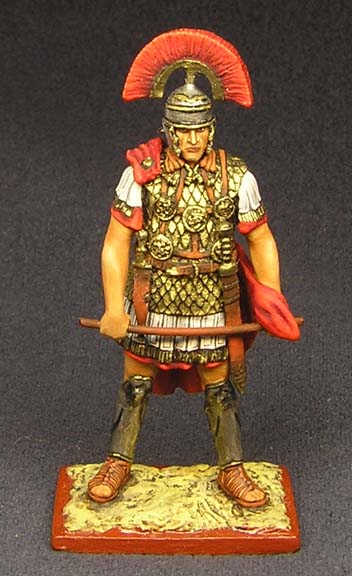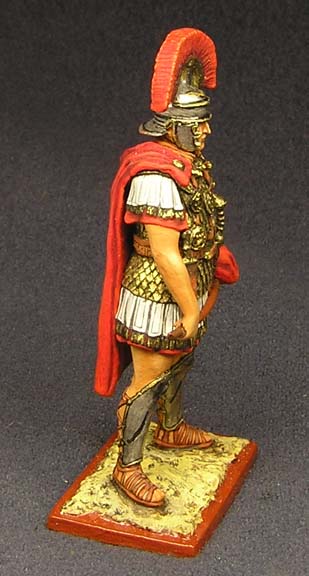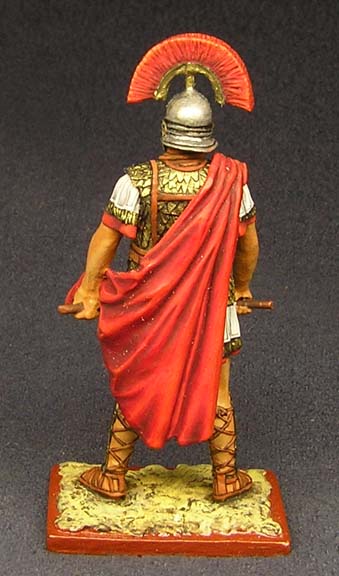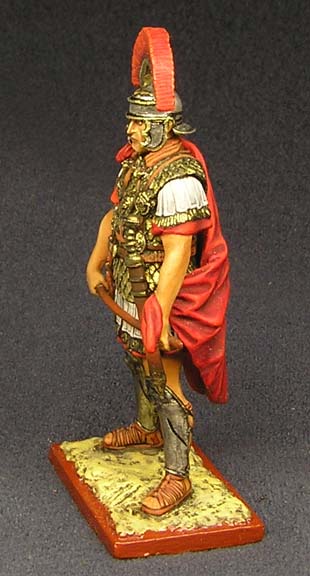X Legion Centurion
Gaius Crastinus


Along with responsibility for the training, discipline, conduct and well-being of the men in their command, Centurions fought as leaders of their men in battle. This bravery often earned great rewards. An example was the performance of Centurion Scaeva who during the Civil War at the Battle of Dyrtachium drove back a large group of Pompeians, enduring 120 piercing blows to his shield. Caesar awarded Scaeva with decorations and 200,000 sesterces for this bravery.
Gaius Crastinus joined the 10th Legion after service in the 8th or 9th Legion in Spain under Pompey the Great. Personally selected by Caesar, he transferred over as a Junior Centurion to the 10th Legion when it was being formed. Serving Caesar in his many campaigns in Gaul, Crastinus eventually became the Chief Centurion before his retirement.
Recalled to duty by Caesar during the Civil War with Pompey, Crastinus lost his life at the Battle of Pharsalus. In one of the very rare instances when the Roman Army bestowed a posthumous award for bravery, Chief Centurion Gaius Crastinus was so recognized by Caesar at the time of his burial after the Battle of Phasalus in 48 BC



 Up
Up